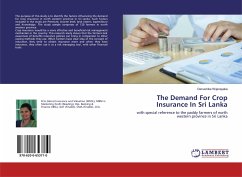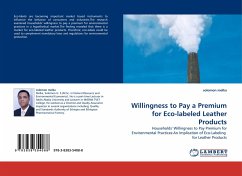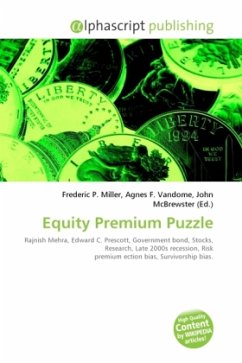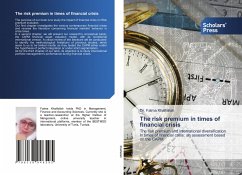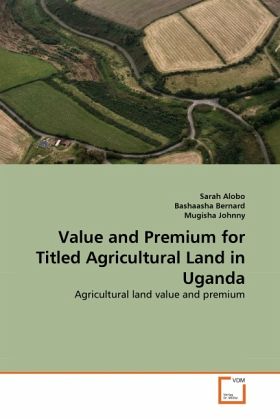
Value and Premium for Titled Agricultural Land in Uganda
Agricultural land value and premium
Versandkostenfrei!
Versandfertig in 6-10 Tagen
32,99 €
inkl. MwSt.

PAYBACK Punkte
16 °P sammeln!
It is argued that land is perhaps the most essential resource and an important pillar of national development. In Uganda, the management of land is regulated by the 1995 constitution and the Land Act of 1998, which recognise four tenure systems, namely; Customary, Mailo, Freehold and Leasehold tenure systems, each of which possess unique features and associated ownership rights. This study analysed important dimensions largely of a locational and regional nature, on tenure system and the value of agricultural land. The general objective was to investigate the determinants of the value of agric...
It is argued that land is perhaps the most essential resource and an important pillar of national development. In Uganda, the management of land is regulated by the 1995 constitution and the Land Act of 1998, which recognise four tenure systems, namely; Customary, Mailo, Freehold and Leasehold tenure systems, each of which possess unique features and associated ownership rights. This study analysed important dimensions largely of a locational and regional nature, on tenure system and the value of agricultural land. The general objective was to investigate the determinants of the value of agricultural land in Uganda. The study hypothesized that institutional factors such as land titles were important determinants of agricultural land prices in Uganda; that there was a significant premium for agricultural land with title/certificate relative to that without, and that the premium for agricultural land with a freehold title was significantly higher than that for other titles/certificates. Data was obtained from the third round of the Uganda National Household Survey (UNHS) conducted by Uganda Bureau of Statistics (UBOS) during the 2004/2005 crop year.







